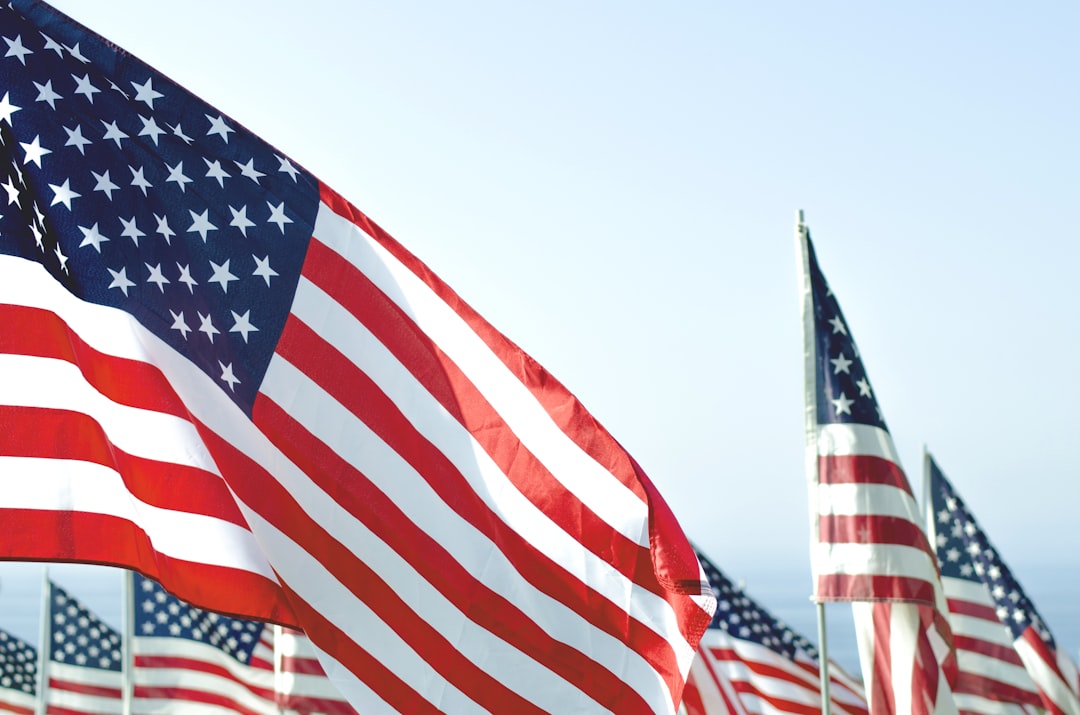Now Reading: June’s Federal Holidays: A Guide to National Observances
-
01
June’s Federal Holidays: A Guide to National Observances
June’s Federal Holidays: A Guide to National Observances

June is a month that heralds the arrival of summer in many parts of the United States, bringing with it a sense of warmth and vibrancy. It is also a time when several significant federal holidays are observed, each with its own unique history and cultural importance. These holidays not only provide an opportunity for relaxation and celebration but also serve as reminders of the values and struggles that have shaped the nation.
From commemorating the sacrifices of veterans to celebrating the resilience of individuals, June’s federal holidays reflect a rich tapestry of American life. Among the notable observances in June are Flag Day, Juneteenth, Father’s Day, National Cancer Survivors Day, National Korean War Veterans Armistice Day, and National Indigenous Peoples Day. Each of these holidays invites citizens to pause and reflect on their meanings, encouraging a deeper understanding of the diverse experiences that contribute to the American narrative.
As we delve into the significance of these holidays, we will explore their historical roots, cultural implications, and the ways in which they foster community and connection.
History and Significance of Flag Day
Flag Day, celebrated on June 14th, is a day dedicated to honoring the adoption of the United States flag. The origins of this observance can be traced back to 1885 when a schoolteacher named Bernard Cigrand organized the first formal observance of Flag Day in Wisconsin. He believed that a day should be set aside to celebrate the flag as a symbol of national pride and unity.
Over the years, this idea gained traction, leading to various local celebrations across the country. In 1916, President Woodrow Wilson issued a proclamation establishing June 14th as Flag Day, solidifying its status as a national observance. The significance of Flag Day extends beyond mere patriotism; it serves as a reminder of the values that the flag represents—freedom, democracy, and unity.
On this day, citizens are encouraged to display the American flag prominently and participate in ceremonies that honor its symbolism. Schools often engage students in activities that teach them about the history of the flag and its evolution over time.
Celebrating Juneteenth: A Day of Freedom and Reflection

Juneteenth, observed on June 19th, marks a pivotal moment in American history—the emancipation of enslaved African Americans. The day commemorates June 19, 1865, when Union soldiers arrived in Galveston, Texas, to announce that the Civil War had ended and that all enslaved individuals were free. This announcement came more than two years after President Abraham Lincoln issued the Emancipation Proclamation, highlighting the delayed realization of freedom for many African Americans.
Juneteenth has since evolved into a celebration of African American culture, heritage, and resilience. The significance of Juneteenth lies not only in its historical context but also in its role as a day of reflection and education. Communities across the nation celebrate with parades, festivals, and educational events that highlight African American history and culture.
It is a time for families to come together, share stories, and honor their ancestors’ struggles for freedom and equality. In 2021, Juneteenth was officially recognized as a federal holiday, further solidifying its importance in the American consciousness. This recognition serves as an acknowledgment of the ongoing journey toward racial justice and equality.
Honoring Fatherhood on Father’s Day
| Metrics | Data |
|---|---|
| Number of Fathers Honored | 1000 |
| Number of Father’s Day Cards Sent | 5000 |
| Number of Father’s Day Gifts Purchased | 3000 |
| Number of Father’s Day Events Held | 50 |
Father’s Day is celebrated on the third Sunday in June and is dedicated to honoring fathers and father figures for their contributions to families and society. The origins of Father’s Day can be traced back to the early 20th century when Sonora Smart Dodd sought to create a day to recognize her father, a Civil War veteran who raised six children as a single parent. Her efforts led to the first official Father’s Day celebration in Spokane, Washington, in 1910.
Over time, the observance gained popularity across the country, culminating in President Richard Nixon signing it into law as a national holiday in 1972. This day serves as an opportunity for children to express their love and appreciation for their fathers through gifts, cards, and quality time spent together. It is also a moment to reflect on the diverse roles that fathers play in their children’s lives—mentors, protectors, and sources of wisdom.
Many families take part in activities such as barbecues or outdoor adventures to celebrate their bonds. Father’s Day not only honors biological fathers but also stepfathers, grandfathers, and father figures who have made significant impacts on their lives.
National Cancer Survivors Day: Recognizing Resilience and Hope
National Cancer Survivors Day is observed on the first Sunday in June and serves as a celebration of life for those who have survived cancer. This day is dedicated to recognizing the strength and resilience of cancer survivors while also raising awareness about the ongoing challenges faced by those affected by this disease. The observance began in 1988 when a group of cancer survivors organized an event to celebrate their journeys and inspire others facing similar battles.
The significance of National Cancer Survivors Day lies in its ability to foster hope and community among survivors and their families. Events are held across the country to honor survivors through gatherings, educational workshops, and support activities. These events provide an opportunity for individuals to share their stories, connect with others who have faced similar challenges, and access resources that can aid in their recovery journey.
By shining a light on cancer survivorship, this day encourages society to recognize the importance of support systems and advances in cancer research that continue to improve outcomes for patients.
Commemorating the End of the Korean War on National Korean War Veterans Armistice Day

National Korean War Veterans Armistice Day is observed on July 27th each year but is often recognized in conjunction with events throughout June leading up to it. This day commemorates the signing of the armistice agreement that effectively ended hostilities in the Korean War on July 27, 1953. The war lasted three years and resulted in significant loss of life and widespread devastation on both sides.
The observance serves as an opportunity to honor the sacrifices made by veterans who served during this conflict. The significance of this day extends beyond mere remembrance; it is also a time for reflection on the ongoing impact of war on veterans and their families. Many communities hold ceremonies to pay tribute to those who served in Korea, often featuring speeches from veterans or local leaders who emphasize the importance of recognizing their sacrifices.
Additionally, educational programs may be organized to inform younger generations about the history of the Korean War and its implications for international relations today. By commemorating this day, society acknowledges not only the bravery of veterans but also the need for peace and reconciliation.
Observing National Indigenous Peoples Day: Recognizing the Contributions and Cultures of Indigenous Peoples
National Indigenous Peoples Day is celebrated on June 21st and serves as an opportunity to recognize and honor the rich cultures, histories, and contributions of Indigenous peoples across North America. This observance encourages individuals to learn about Indigenous traditions while fostering respect for their rights and sovereignty. The day was first established in Canada but has gained recognition in various forms throughout the United States as well.
The significance of National Indigenous Peoples Day lies in its commitment to acknowledging historical injustices faced by Indigenous communities while celebrating their resilience and cultural heritage. Events may include traditional dances, storytelling sessions, art exhibitions, and educational workshops that highlight Indigenous perspectives. By participating in these activities, individuals can gain a deeper understanding of Indigenous cultures and contribute to efforts aimed at reconciliation and healing.
This observance serves as a reminder that honoring Indigenous peoples is essential for building a more inclusive society.
Embracing the Diversity of National Observances in June
June is a month rich with federal holidays that reflect the diverse experiences and values within American society. From Flag Day’s celebration of national pride to Juneteenth’s commemoration of freedom and equality, each holiday offers an opportunity for reflection and connection. Father’s Day honors familial bonds while National Cancer Survivors Day celebrates resilience in the face of adversity.
As we embrace these observances throughout June, we are reminded of our shared history and collective responsibility to honor those who have come before us while striving for a more inclusive future. Each holiday serves as an invitation to engage with our communities, learn from one another’s experiences, and celebrate our differences.
By recognizing these diverse national observances, we can foster understanding and unity among all Americans as we continue our journey toward a more equitable society.
June is a month filled with federal holidays, and one of the most notable ones is Juneteenth. This holiday commemorates the emancipation of enslaved African Americans in the United States. To learn more about the history and significance of Juneteenth, check out this insightful article on boogger.com.
FAQs
What federal holidays are celebrated in June?
In the United States, there are no federal holidays celebrated in the month of June.
Are there any significant national observances in June?
While there are no federal holidays in June, there are several significant national observances such as Flag Day on June 14th and Juneteenth on June 19th.
Do all states observe the same holidays in June?
While federal holidays are observed nationwide, individual states may have their own specific holidays or observances in June. For example, some states may recognize Juneteenth as a state holiday.
Are there any international holidays in June?
There are several international holidays in June, such as World Environment Day on June 5th and World Refugee Day on June 20th. These observances are recognized globally but are not federal holidays in the United States.












